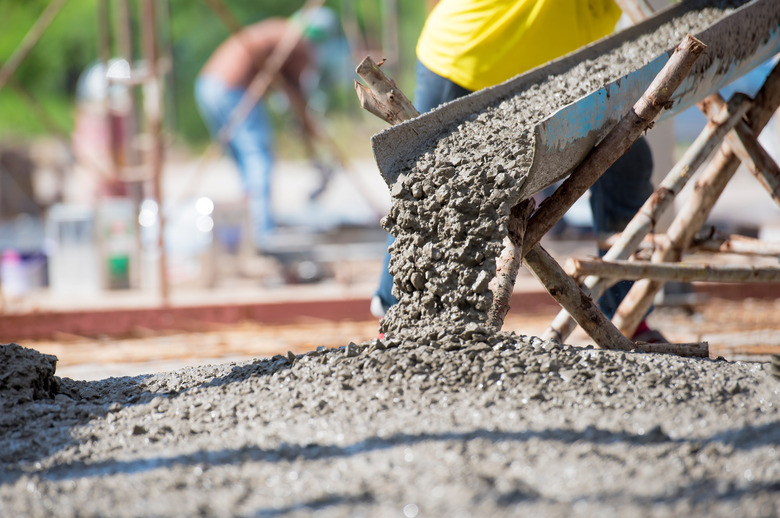How To Calculate Cubic Yards
Cubic yards often replace cubic feet as the U.S. standard unit when handling large volumes of materials, such as concrete slabs, mulch and topsoil, because the resulting calculations are smaller and more manageable. As an example, a contractor can better visualize, remember and convey "12 cubic yards" rather than "324 cubic feet." For increased brevity, frequent handlers of such materials often term the unit as just "yards," although doing so incorrectly implies a measurement of length, rather than volume.
Step 1
Measure the length, width and height of the area in units of feet. For any remainders or measurements less than 1 foot, use inches for now. As an example, you might measure a proposed driveway as 6 inches high, 20 feet wide and 31 feet 9 inches long.
Step 2
Divide any figures that use inches by 12 to convert them to feet and ensure every measurement is consistent. In the example height, divide 6 inches by 12 to convert the measurement to 0.5 feet. If the measurement is in feet and inches, divide the inches by 12 and append the resulting decimal to the feet measurement. In the example length, dividing 9 inches by 12 and appending the resulting 0.75 decimal converts the length to 31.75 feet.
Step 3
Multiply the three measurements to calculate the volume in units of cubic feet. In the example, multiplying 0.5 times 20 times 31.75 calculates a volume of 317.5 cubic feet.
Step 4
Divide the result by 27 to convert to cubic yards. The result is the exact figure, but your supplier probably won't sell you a fraction of a cubic yard, so round up to the nearest whole number; it's always better to have slightly more material than you need, rather than having too little. In the example, dividing 317.5 by 27 calculates the volume as 11.76 cubic yards, which rounds up to 12 cubic yards.
TL;DR (Too Long; Didn't Read)
When purchasing material, consider buying slightly more than you need, particularly if your volume measurement didn't require rounding up. The little extra will compensate for spillage and settling.
If you know how many cubic meters you need, and want to calculate how many cubic yards you need, simply multiply by 1.31. Again, rounding up is best to ensure that you will have enough material for your project.
Cite This Article
MLA
Taylor, C.. "How To Calculate Cubic Yards" sciencing.com, https://www.sciencing.com/calculate-cubic-yards-2266389/. 13 March 2018.
APA
Taylor, C.. (2018, March 13). How To Calculate Cubic Yards. sciencing.com. Retrieved from https://www.sciencing.com/calculate-cubic-yards-2266389/
Chicago
Taylor, C.. How To Calculate Cubic Yards last modified March 24, 2022. https://www.sciencing.com/calculate-cubic-yards-2266389/
